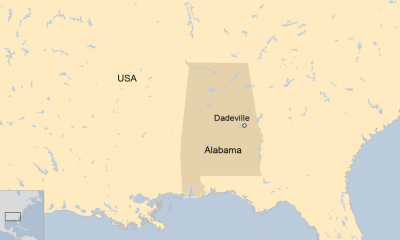Foreign News
Kenneth Eugene Smith faces first nitrogen execution in US after losing last-minute appeals
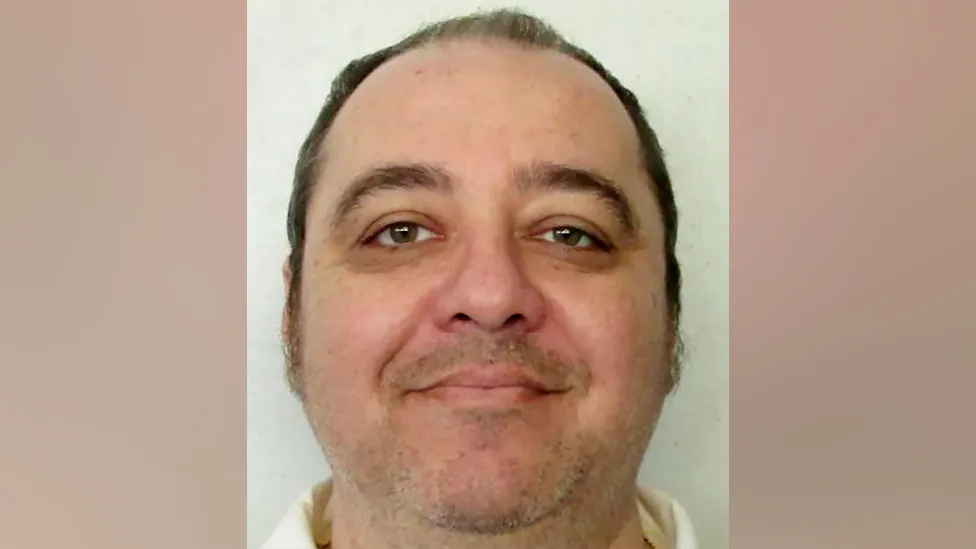
An Alabama death row inmate is expected to become the first person in the US to be executed with nitrogen gas, after losing last-minute appeals.
The US Supreme Court and a lower appeals court declined to block what Kenneth Eugene Smith’s lawyers called a “cruel and unusual” punishment.
Opponents say using nitrogen could cause unnecessary suffering, and a leak could harm people present in the room.
Smith, 58, was convicted in 1989 of murdering Elizabeth Sennett.
Alabama has 30 hours to carry out the execution, which involves pumping nitrogen gas through a mask, from Thursday at 0600 GMT (0100 ET).
He told the BBC earlier this week that the wait felt like torture.
Smith would be the first person to be put to death by this method in the US and, according to the Death Penalty Information Center, anywhere in the world.
Lawyers for the inmate, who has been on death row since 1996, told the BBC on Wednesday night that they were lodging another appeal to the nation’s top court in the hope of a last minute reprieve.
Breathing pure nitrogen without oxygen causes the cells to break down and leads to death. Alabama said in a court filing that they expect him to lose consciousness within seconds and die in a matter of minutes. But its use has been denounced by some medical professionals, who warn it could cause a range of catastrophic mishaps, ranging from violent convulsions to survival in a vegetative state.
Alabama and two other US states have approved the use of nitrogen hypoxia as an alternative method of execution because the drugs used in lethal injections have become more difficult to find, contributing to a fall in the number of executions nationally.
Alabama already tried to execute Smith by lethal injection two years ago but were unable to raise a vein before the state’s death warrant expired.
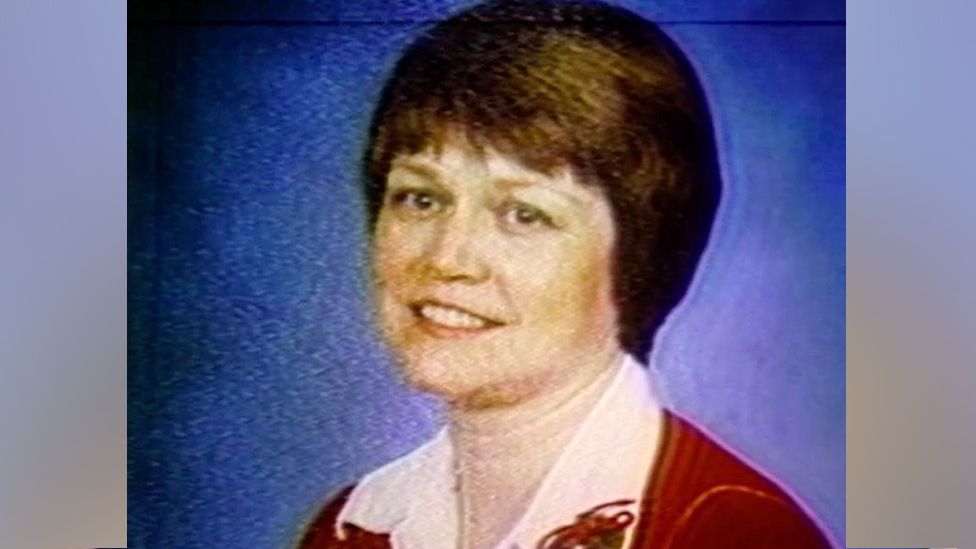
Smith was one of two men convicted of murdering 45-year-old Sennett in a $1,000 (£790) killing-for-hire in March 1988. She was beaten with a fireplace implement and stabbed in the chest and neck, and her death was staged to look like a home invasion and burglary.
Her husband Charles Sennett, a debt-ridden preacher, had orchestrated the scheme to collect insurance money. He killed himself as investigators closed in. Smith’s fellow hitman, John Forrest Parker, was executed in 2010.
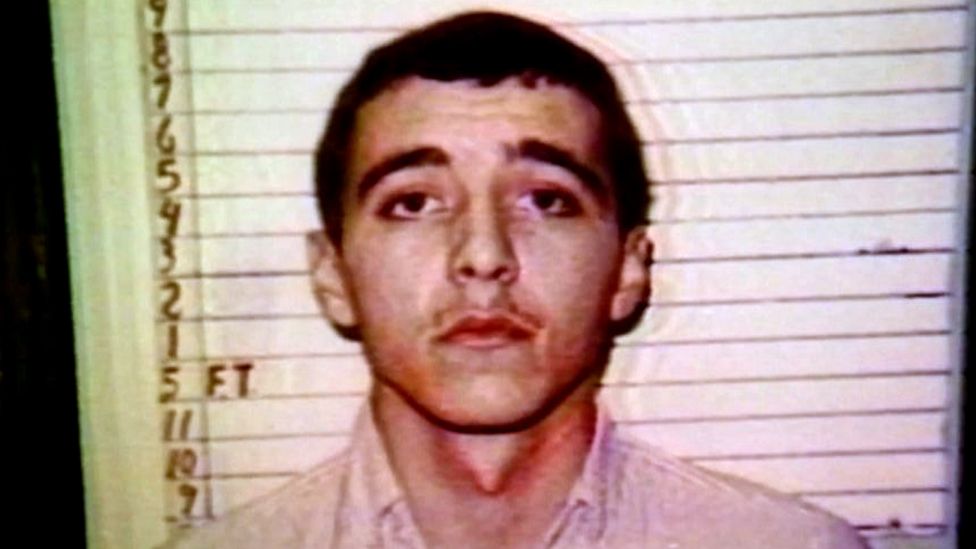
At his trial Smith admitted to being present when the victim was killed, but said he did not take part in the attack.
The UN’s High Commissioner for Human Rights has said gassing Smith could amount to torture or other cruel, inhuman or degrading treatment, and called for a halt. Smith’s lawyers lodged a challenge with the Supreme Court, arguing that putting convicts through multiple execution attempts violates the Eighth Amendment of the US Constitution, which protects against “cruel and unusual” punishment.
On Wednesday, the justices declined to hear the appeal and denied his request to halt the execution. No justice publicly dissented from the ruling.
Smith also made a separate legal challenge to the lower 11th US Circuit Court of Appeals, where he contested the legality of Alabama’s nitrogen gas protocol. But that court also rejected the inmate’s request for an injunction in a ruling on Wednesday evening.
Smith’s lawyers said they would again appeal to the Supreme Court.
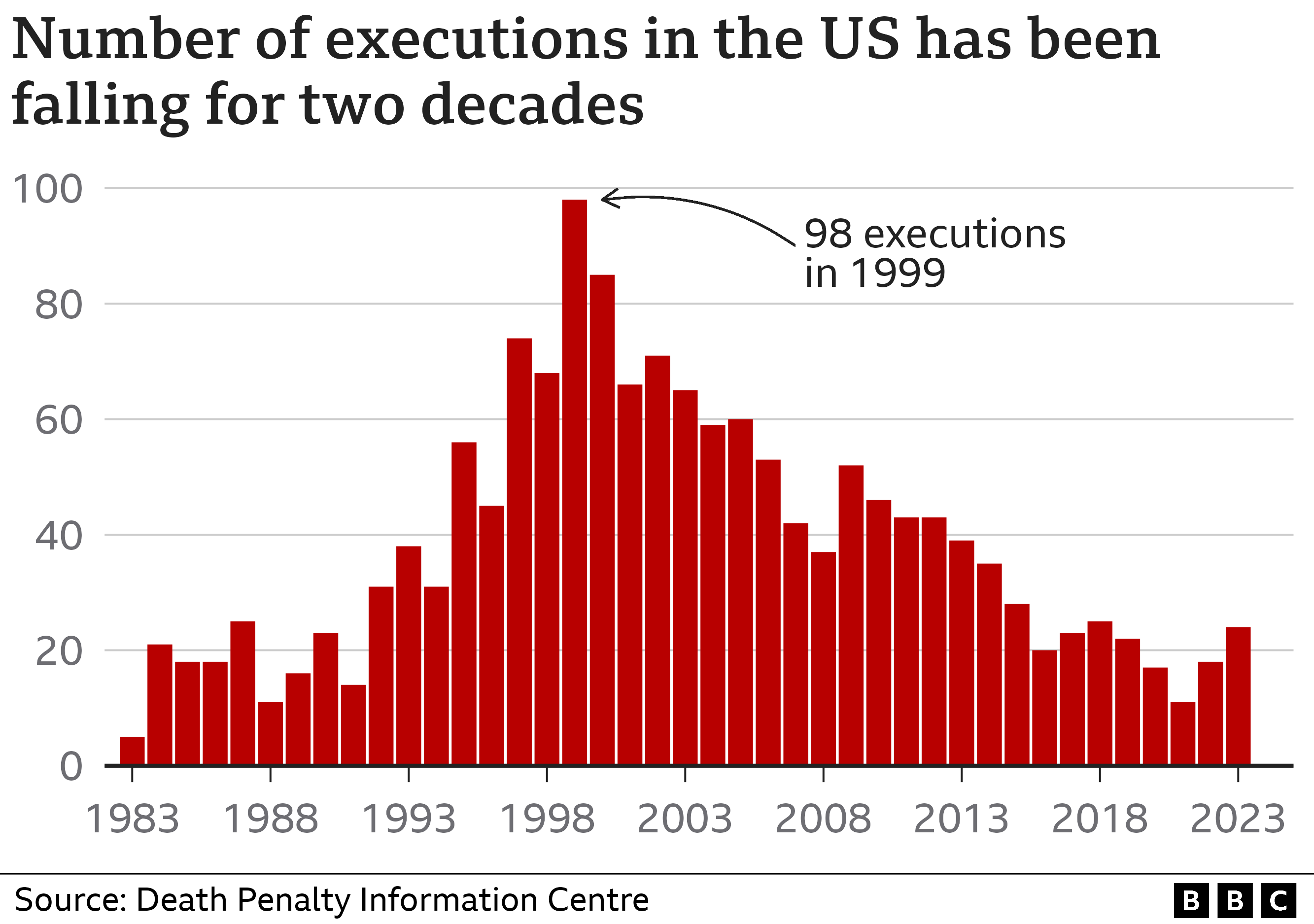
His legal team argue the nitrogen gas method is “recently released and untested”, leaving him at risk of choking on his own vomit.
State Attorney General Steve Marshall previously called it “perhaps the most humane method of execution ever devised”.
Smith’s spiritual adviser, Reverend Jeff Hood, will be present in the room when the execution happens. He told the BBC he believes he will be in danger if the nitrogen leaks.
On Wednesday, prison officials escorted Rev Hood for a “walk-through” of the execution chamber, as required by Alabama’s execution protocol.
He told the BBC afterwards that he saw oxygen-level meters unplugged on a ledge inside the room, which he described as “unbelievably disturbing, it feels like you are at the centre of evil”.
“I asked ‘what’s the safety plan?’ and they said they didn’t want to get into it, they couldn’t get into it,” he said. “Once again we’re back at this place of having to rely on these people who have botched three executions in the last few years, he said. “It’s absolutely a terrifying thing to think that your life hangs in the balance with these guys”.
Rev Hood said he had requested that Alabama’s Governor Kay Ivey be present in the chamber during the execution to demonstrate her confidence in its safety, but had not received a response. “We have somebody who is championing this type of execution in the governor and yet she is unwilling to get her hands dirty,” he said.
The BBC has approached Ms Ivey’s office for comment regarding this and the latest accusations over safety.
Alabama has one of the highest per capita execution rates in the US and has 165 people currently on death row.
Since 2018, the state has been responsible for three botched attempts at lethal injection in which the condemned inmates survived.
The failures led to an internal review that largely placed blame on the prisoners themselves.
(BBC)
Foreign News
Iraq sandstorm leaves many with breathing problems
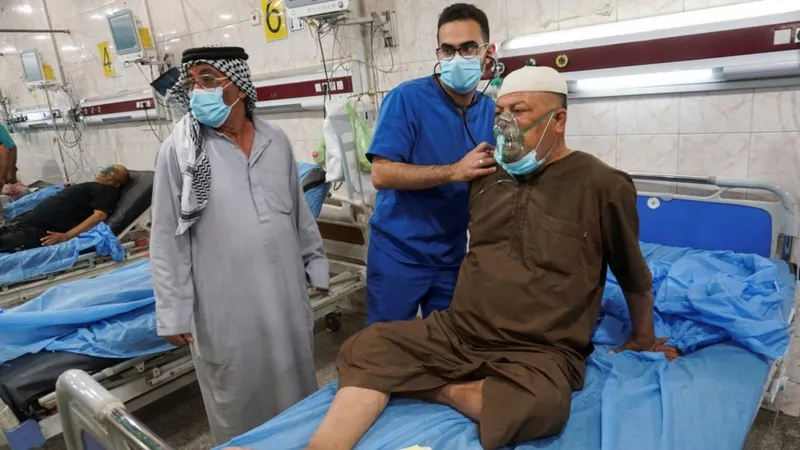
More than a thousand people have been left with respiratory problems after a sandstorm swept across Iraq’s central and southern parts of the country, health officials said.
One official in Muthanna province reported to the AFP news agency at least 700 cases of what they said was suffocation.
Footage shared online showed areas cloaked in a thick orange haze, with local media reporting power cuts and the suspension of flights in a number of regions.
Dust storms are common in Iraq, but some experts believe they are becoming more frequent due to climate change.
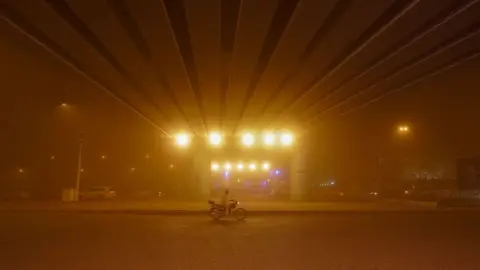
Pedestrians and police wore face masks to protect themselves from the dust and paramedics were on site to assist people with difficulty breathing, according to AFP.
Hospitals in Muthanna province in southern Iraq received at least “700 cases of suffocation”, a local health official said.
More than 250 people were taken to hospital in Najaf province, and at least 322 patients including children were sent to hospitals in Diwaniyah province.
A further 530 people reported breathing issues in Dhi Qar and Basra provinces.
The sandstorm blanketed Iraq’s southern provinces in an orange cloud that reduced visibility to less than one kilometre (0.62 mile).
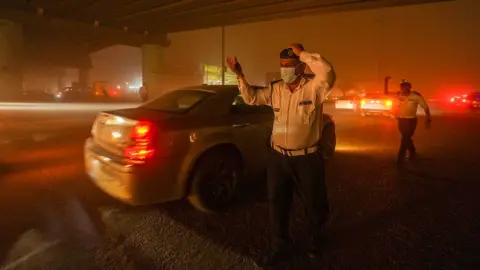
The authorities were forced to shut down airports in the provinces of Najaf and Basra.
Conditions are expected to gradually improve by Tuesday morning, according to local weather services.
Iraq is listed by the UN as one of the five countries most vulnerable to climate change as it encounters regular sandstorms, sweltering heat and water scarcity.
A severe sandstorm in 2022 left one person dead and more than 5,000 needing treatment for respiratory illnesses.
Iraq will be experiencing more “dust days” in the future, according to its environment ministry.
[BBC]
Foreign News
Indian billionaire jeweller Mehul Choksi arrested in Belgium
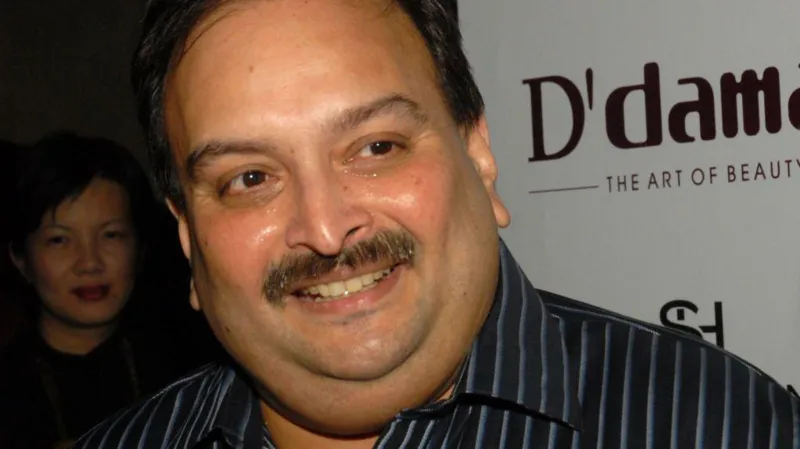
Indian businessman Mehul Choksi has been arrested in Belgium following India’s request for his extradition.
Choksi, who left India in 2018, was arrested on Saturday, his lawyer Vijay Aggarwal told the BBC on Monday.
The diamond merchant is wanted by India for allegedly defrauding one of the country’s largest banks of nearly $1.8bn (£1.3bn).
Choksi has not commented publicly on the case, but his lawyer said they would appeal against his detention and also oppose his extradition to India.
“These are the obvious grounds on which we will argue the case, that he is not a flight risk and secondly, that he is extremely sick. He is undergoing cancer treatment,” Mr Agarwal said. He added that they would “contest the extradition on grounds that there isn’t enough evidence against him and the extradition request is politically motivated and the trial in India may not be fair”.
The BBC has reached out to India’s foreign ministry and financial crimes agency – the Enforcement Directorate (ED) – for comment.
According to a Times of India report, Choksi was arrested on the basis of two non-bailable warrants issued by an Indian court in 2018 and 2021 – although it’s not clear why the action came now.
Mehul Choksi and his nephew, Nirav Modi, are wanted by Indian authorities in connection with a $1.8bn fraud case at Punjab National Bank (PNB).
Niray Modi, who’s also been living abroad since 2018, is lodged in a prison in London and is awaiting extradition to India.
Both were high-profile diamond traders. Modi’s jewellery was worn by several Hollywood celebrities such as Naomi Watts and Kate Winslet. One of the biggest Bollywood stars, Priyanka Chopra, was his company’s brand ambassador. Choksi, meanwhile, was the owner of Gitanjali Gems, an Indian jewellery retailer which once had about 4,000 stores across India.
The ED has accused Choksi and Modi of colluding with some employees of PNB’s Brady House branch in Mumbai city to get fraudulent advances for payments to overseas suppliers of jewels.
These funds were then allegedly diverted and laundered.
Choksi and Modi have denied the allegations against them.
After leaving India, Choksi reportedly travelled to the US and later to Antigua – where he has citizenship. In 2021, he was reportedly arrested in Dominica and deported back to Antigua.
Hariprasad SV, a Bengaluru-based entrepreneur who had in 2016 alerted authorities about the alleged scam at PNB, said Choksi’s arrest was “great news”. “Apart from bringing him back, the most important thing is to get back all those billions of dollars he looted from India,” he told ANI news agency.
[BBC]
Foreign News
Trump exempts smartphones and computers from new tariffs
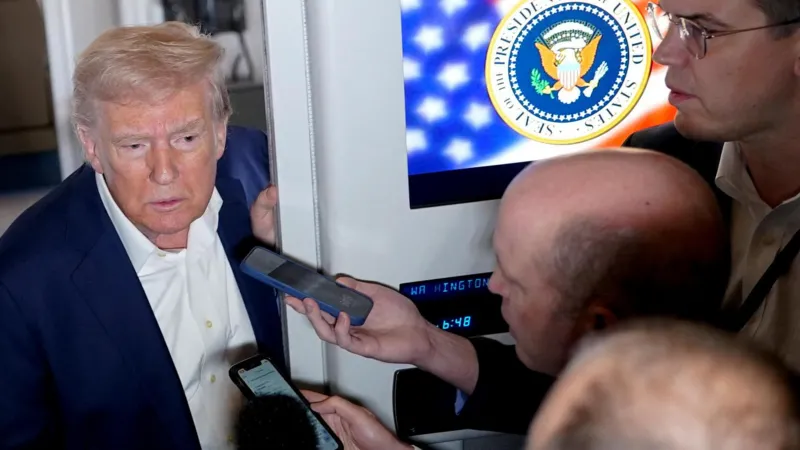
US President Donald Trump’s administration has exempted smartphones, computers and some other electronic devices from “reciprocal” tariffs, including the 125% levies imposed on Chinese imports.
US Customs and Border Patrol published a notice late on Friday explaining the goods would be excluded from Trump’s 10% global tariff on most countries and the much larger Chinese import tax.
The move comes after concerns from US tech companies that the price of gadgets could skyrocket, as many of them are made in China.
This is the first significant reprieve of any kind in Trump’s tariffs on China, with one trade analyst describing it as a “game-changer scenario”.
[BBC]
-

 News4 days ago
News4 days agoSuspect injured in police shooting hospitalised
-

 Features5 days ago
Features5 days agoRobbers and Wreckers
-

 Features7 days ago
Features7 days agoSri Lanka’s Foreign Policy amid Geopolitical Transformations: 1990-2024 – Part III
-

 Midweek Review7 days ago
Midweek Review7 days agoInequality is killing the Middle Class
-

 Business4 days ago
Business4 days agoSanjiv Hulugalle appointed CEO and General Manager of Cinnamon Life at City of Dreams Sri Lanka
-

 Business6 days ago
Business6 days agoNational Anti-Corruption Action Plan launched with focus on economic recovery
-

 Features3 days ago
Features3 days agoLiberation Day tariffs chaos could cause permanent damage to US economy, amid global tensions
-
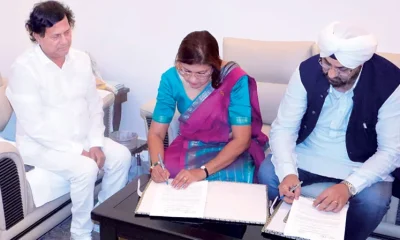
 News7 days ago
News7 days agoIChemC signs MoU with KIIT, India




